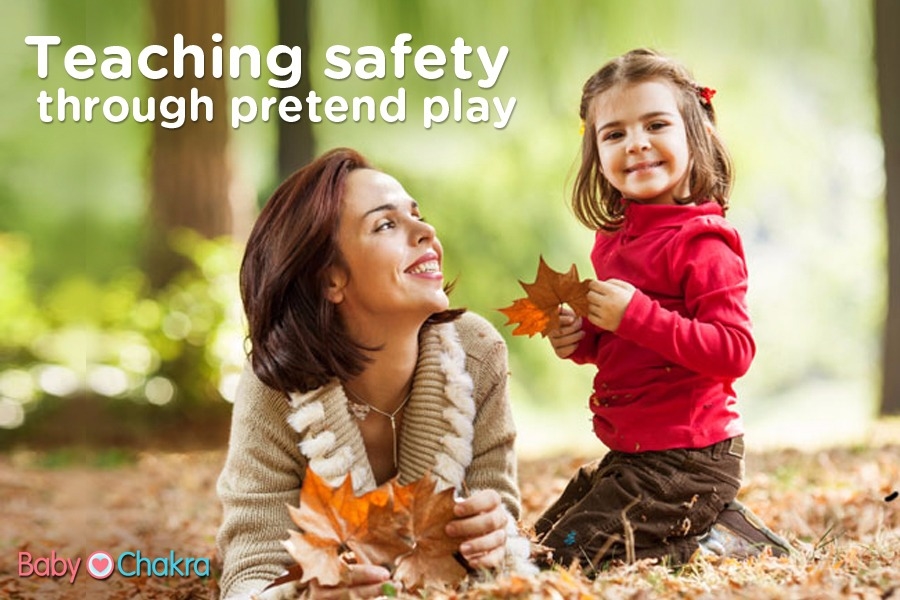
Empower Your Child Today!
11 Oct 2017 | 2 min Read
Dr. Payal M
Author | 5 Articles
Children love pretend play and it can teach a child a lot more than speech or understanding instructions. Our first pretend play sessions started when my daughter started big school. The theme for the pretend play was all about the new ritual of pickup and drop at the bus stop and the bus ride!
My daughter enacted the first part of her morning ritual at school – going to her class, putting her bag in the cubby, removing water bottle etc. These were things I wouldn’t know otherwise, right?
When her school started talking to the kids(she was in nursery) about safety, strangers etc. I posed as a stranger (with props, set-up etc) and posed different questions to my kid.





These were repeated over and over.
My daughter did well overall in refusing to believe me, but only once did she give in when I pretended to know everything about her parents.It was even better when she became the stranger and I pretended to be the kid! We also did one where I was the kid and she was my mummy dropping me and picking me from school.So much fun!
Roleplaying worked really well to drive away the anxiety that both, me and my child faced. Pretend play is a great way to teach our kids resistance to lures such as above. Give it a shot!!
Let me know in comments how your little one responded.
Also read: Empowering Children Against Abuse
Explore the entire collection of articles: Child Safety
If you are reading this article on our website and have an Android phone, please download our APP here for a more personalised experience based on your lifestage.
A


Related Topics for you
Suggestions offered by doctors on BabyChakra are of advisory nature i.e., for educational and informational purposes only. Content posted on, created for, or compiled by BabyChakra is not intended or designed to replace your doctor's independent judgment about any symptom, condition, or the appropriateness or risks of a procedure or treatment for a given person.
